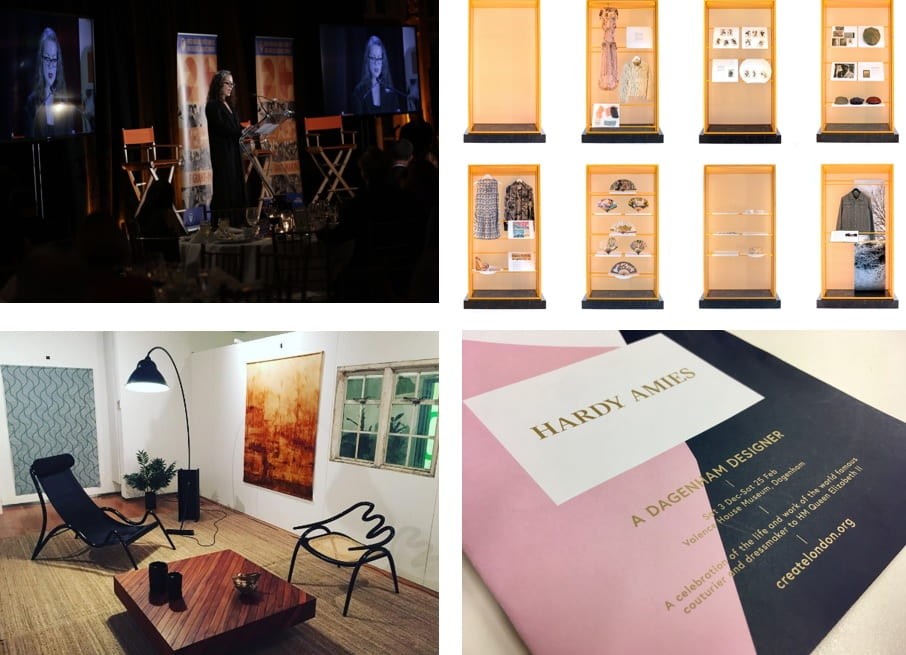Feeling stuck in a rut, bored with your job – or just glad you’ve still got one? For students and workers in the creative industries, raw talent on its own will never be enough to get on. For the rest of us, we probably could do better.
We see a lot of talent at the London College of Fashion. That’s what we are about – nurturing future world leaders of fashion. I am privileged to see talented young designers at the birth of their career. But watching students progress through the college, and looking at their experiences afterwards, I know that success demands a great deal more than just talent.
Of course, talent is a prerequisite: there is little point in embarking on any of our courses without an eye for colour and style, hands that can craft and a brain crackling with originality, any more than music is the future for someone who is tone deaf. But talent is not enough. We also look for students who can maximise on that talent, who have the ability to learn and are dedicated to hard work. These two qualities are necessary, whatever field you choose to excel in.
Talent needs to be fostered and built upon. There are probably a million talented artists in this country with a magnificent ability to paint or draw. Yet most of them dabble, for they are ‘good enough’. The brave ones put themselves up for criticism: they explore different techniques and experiment with various styles. They learn about colour, light and shade, seeking to understand those who came before them so that they can use that knowledge to create something original of their own. For many young people, a lack of self-confidence is masked by arrogance, which stops them from listening. Humility in the face of past masters is what is needed.
Determination and hard work must go hand in hand with talent in order to succeed. The script for the film that made Hugh Grant’s career, Four Weddings and a Funeral, was rewritten 17 times before it was accepted. Watch it again today: it stands the test of time, being both tightly written and incredibly funny. Now that the writer, Richard Curtis, is famous, he is no longer subjected to that discipline. Sometimes it shows.
United States President Thomas Jefferson said: ‘I’m a great believer in luck, and I find the harder I work the more I have of it.’ This has been echoed across the centuries by most successful people, particularly in sport. Any professional football club will tell you that there is a lot of raw talent out there. They are always waiting to snap up the schoolboy stars, but most are let go long before they are considered good enough for the first team. These are the ones who think they are too good to need to learn, and are not prepared to put in the hours of practice it takes to get better. They want the lifestyle of a Premier League footballer without understanding the sweat needed to achieve it. The famous American inventor, Thomas Edison said: ‘Success is 10% inspiration and 90% perspiration.’ This is true in any field.
Most of us do not have extraordinary gifts, but that is no excuse for not capitalising on our talent. In today’s economic climate, young women now could be working for the next 50 years as the pension age continues to rise. If they work only for the money to keep themselves alive, they are wasting a great deal of their life. We need to make the very most of the talent that we have. Success does not mean reaching the top; success means being happy.
Nowadays, not only is a job not for life, but changing career is common. Matthew Parris, the Times columnist and former Conservative MP, says: ‘If you don’t succeed at first, then by all means give it a really good go, but then give up and try something else.’ He claims to have failed at six careers before finding his calling.
Everybody can follow their dream, but it takes courage. A fear of failure drives many people into safe jobs and second-choice careers. One should not spend the rest of one’s life wondering what would have happened, if only. Failure can bring rewards, demonstrating our strengths as well as our weaknesses. Failure can be part of learning, seeing why not to do something in a certain way.
The terrible British habit of delighting in the fall of an idol stems from the bitterness of the many who never dared to try and who hate anyone who succeeds. Yet we need talent in this country, a small island with dwindling natural resources which has to rely on the skills of its people. Instead of pushing for the safe and the routine, we need to be nurturing and upskilling people, encouraging bravery and natural talent.
For Sublime Magazine. Issue 29 Maximise




